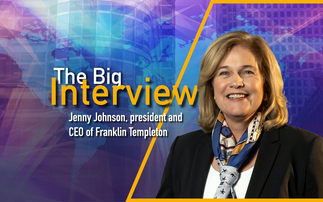
PIMCO's Secular Forum 2021 brought together internal experts and a range of invited speakers to explore the post-pandemic outlook for the global economy, policy, politics, and financial markets over the next five years. The discussions identified three broad trends that are likely to drive a major transformation of the global economy and markets.
1) The transition from brown to green
With increasing voter and consumer focus in many parts of the world, governments, regulators, and the corporate sector are stepping up their efforts to decarbonize and achieve net zero emissions by 2050. This means that both private and public investment in renewable sources of energy will be boosted over our secular horizon and for years to come. While the heavy lifting will have to be done by the private sector, both the U.S. bipartisan infrastructure bill and the EU Next Generation fund will support the transition with sizable spending on "green" infrastructure over the next five years.
Of course, higher private and public spending on clean energy is likely to be partly, but not fully, offset by lower investment and capital destruction in brown energy sectors such as coal and oil. During the transition there is a potential for supply disruptions and spikes in energy prices that sap growth and boost inflation, as recent events in China and Europe have demonstrated.
Moreover, as the process creates winners and losers, there is a potential for political backlash in response to job losses in brown industries, higher carbon taxes and prices, or carbon border adjustment mechanisms that make imports more expensive. While the destination - a net zero world - is desirable for many reasons, including economic ones, the path to this destination is unlikely to be smooth.
2) Faster adoption of new technologies
In last year's outlook we expected the pandemic to turbocharge digitalization and automation. This is borne out by the data available so far, which show a significant rise in corporate spending on technology. Similar increases in investment in the past, e.g., during the 1990s in the U.S., have been accompanied by an acceleration in productivity growth.
Developments over the past year suggest this may again have been the case as productivity has surged, though the cyclical rebound clearly also played a role. It remains to be seen whether the recent surge in tech investment and productivity growth is a one-off or the beginning of a stronger trend, but the data so far do support the notion that the pandemic served as a catalyst for a faster adoption of new technologies.
Digitalization and automation will lead to better economic outcomes overall by creating new jobs and making existing jobs more productive. But it will also be disruptive for those whose jobs will disappear and who may lack the right skills to find employment elsewhere. As with globalization, the dark side of digitalization and automation will likely be rising inequality and more support for populist policies at both ends of the political spectrum.
3) Sharing the gains from growth more widely
The third potentially transformative trend underway is the heightened focus by policymakers and society at large on addressing widening income and wealth inequality and making growth more inclusive. The latest case in point is the new focus by China's leadership on "common prosperity," aimed at narrowing the private wealth and income gap.
Meanwhile, partly due to pressure from investors increasingly focused on ESG (environment, social, and governance) and partly due to self-interest, many companies are focused on improving working conditions, pay structures, and workforce diversity. Anecdotal evidence suggests that in many companies, the balance of power in the employer-employee relationship has started to shift nfrom the former to the latter, thus improving workers' bargaining power.
It remains to be seen whether this trend continues or whether work from home with the help of technology eventually allows companies to outsource more jobs to cheaper domestic and global locations, thus preserving or even increasing employers' bargaining power.
To learn more about the key risk facing income investors and how the PIMCO team approach mitigtating these while building more resiliant income click on the button below.
This post was funded by PIMCO
For investment professionals only. PIMCO Europe Ltd (Company No. 2604517) Ltd (Company No. 2604517) and PIMCO Europe Ltd - Italy (Company No. 07533910969) are authorised and regulated by the Financial Conduct Authority (12 Endeavour Square, London E20 1JN) in the UK. PIMCO Europe Ltd services are available only to professional clients as defined in the Financial Conduct Authority's Handbook and are not available to individual investors, who should not rely on this communication.













